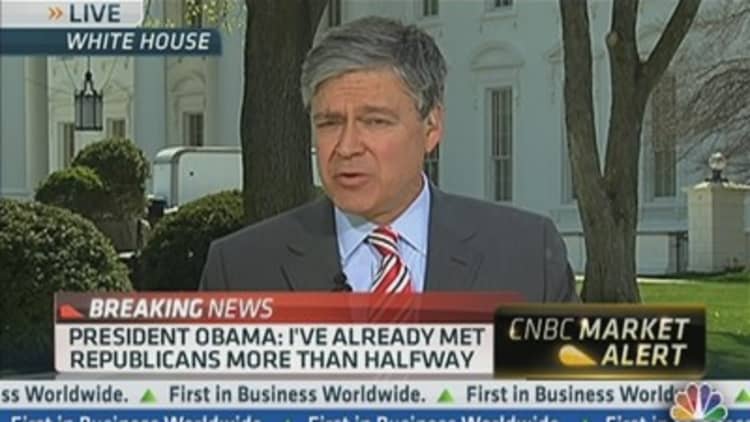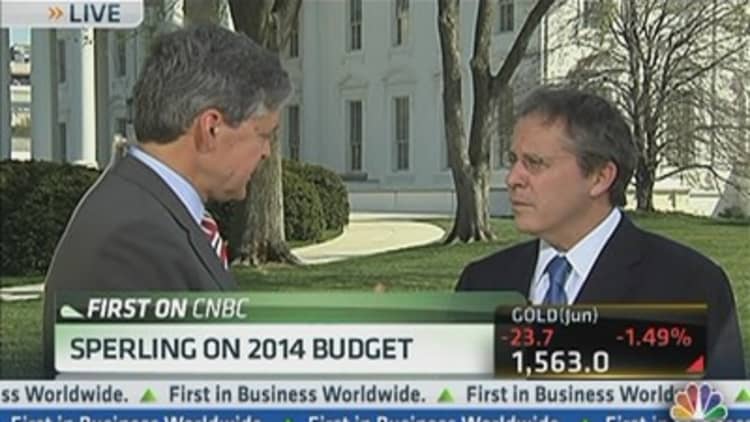
Think of President Barack Obama's budget plan as pursuing two separate goals.
One is, as always, expressing the president's priorities. Instead of giving tax breaks for the "carried interest" of hedge fund managers, for instance, Obama would use some of the same money to provide tax credits for low-income workers, parents needing child care or small businesses. As a result, much of the budget would reshuffle existing spending and devote it to other purposes.
(Read More: President Obama: Budget Is 'Fiscally Responsible')
The second is to lure congressional Republicans, again, into negotiations for a budget "grand bargain." That's why the White House document includes plan for reducing Medicare and Social Security spending by in ways the administration wouldn't otherwise favor.
Since Republicans have called for large savings to those entitlement programs for the elderly, Obama aims to persuade that he's willing to compromise on that priority. His budget includes $270 billion in Medicare cuts, and $230 billion in reduced inflation adjustments for Social Security and other federal programs.
(Read More: Obama Proposes Cuts to Weapons Programs in 2014 Budget)
In return, however, the president insists on additional tax increases, beyond the fiscal cliff deal struck at the end of 2012, as part of any such deal.

The Obama budget proposes $580 billion worth of such tax hikes from two sources: limiting the value of income tax deductions for top earners to 28 percent, and implementing the so-called "Buffett Rule" calling for a minimum 30 percent tax rate on incomes of $1 million or more. Obama has long favored both ideas.
The president's priorities typically get changed by Congress when it passed spending bills, and this year will be no exception.
(Read More: Obama Sends $3.8 Trillion Budget—'Grand Bargain' Time?)
But on the second goal, will Mr. Obama's budget spur negotiations? That's unclear, and the answer may hinge on the sort of pragmatic Senate Republicans Obama is hosting for dinner at the White House Wednesday night. The country should know the answer by August, when Congress faces a new decision on raising the federal debt limit.
—By CNBC's John Harwood; Follow him on Twitter: @JohnJHarwood


